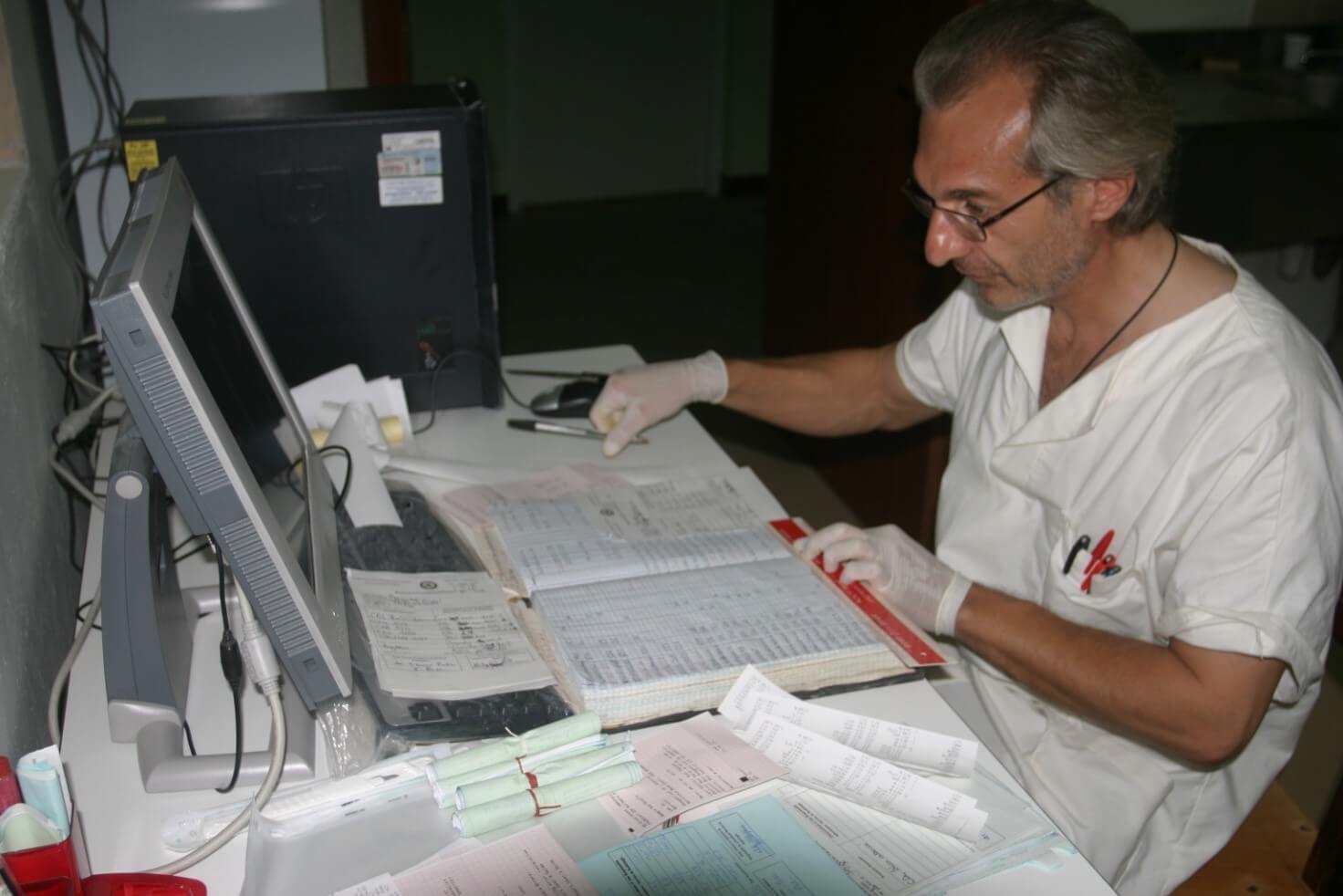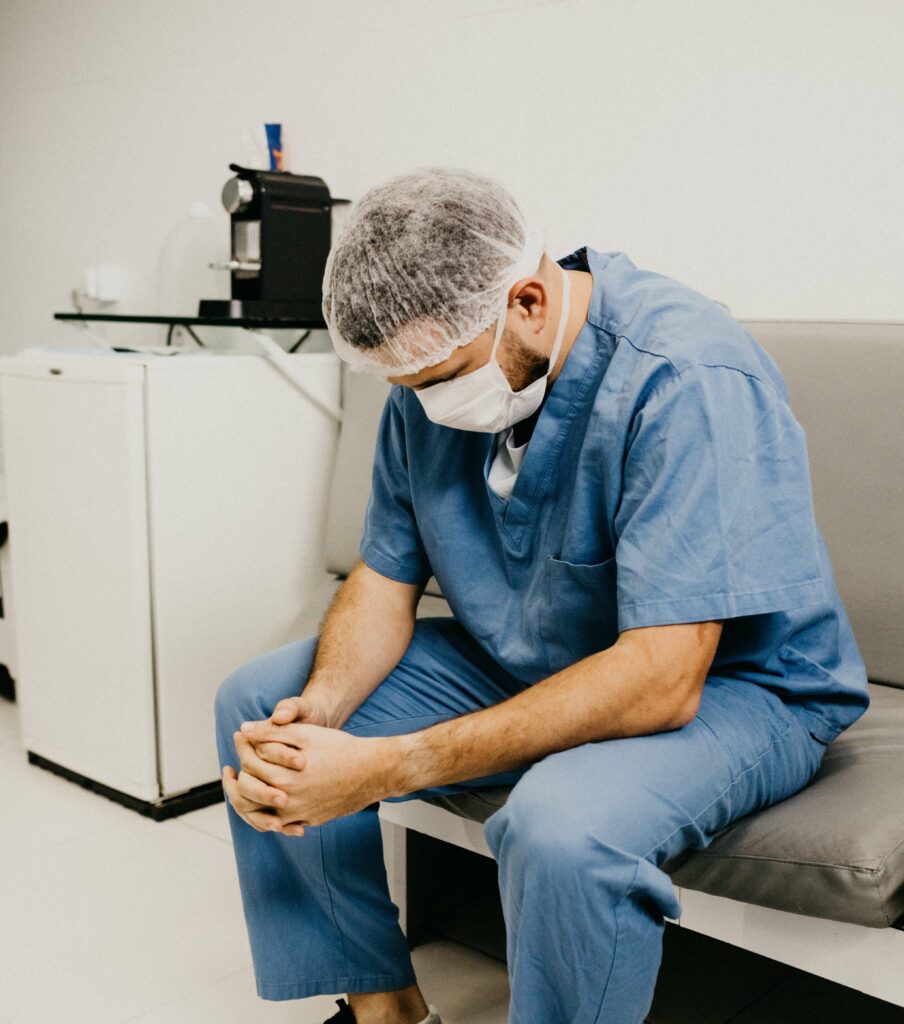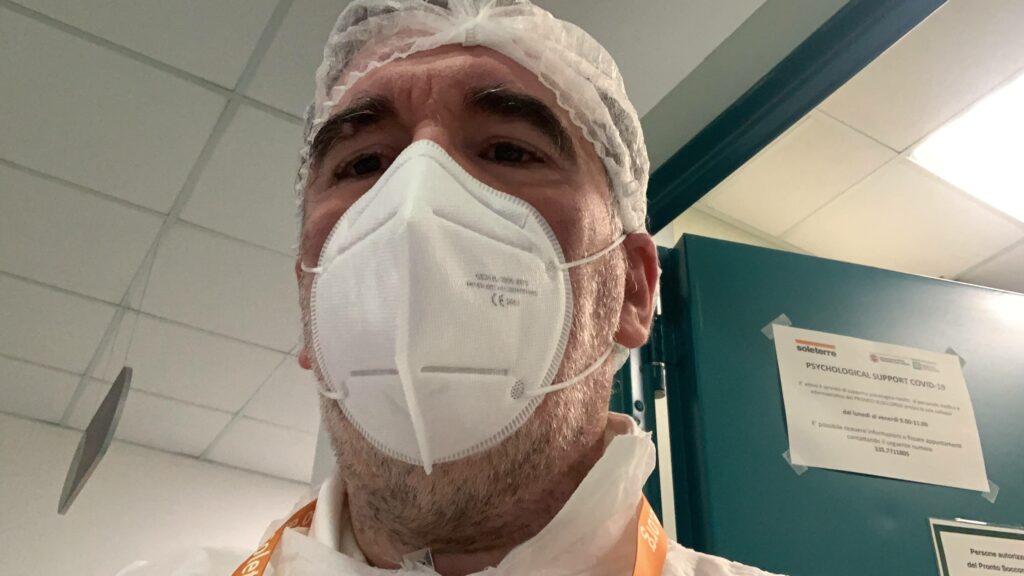SHARE
INFO
- DATE: 27-04-2020
- PLACE: Milan
COUNTRY OF PROVENANCE

Italy
RELATED ARTICLES

Angelo and the Coronavirus in the Central African Republic
Angelo left Italy 15 years ago to manage a health centre in Bouar. Today, because of the coronavirus emergency, his patients risk to be left without treatment

Avicenna #20quarantine stories – Let’s start!
Where does the word quarantine come from? The Persian Avicenna in 1025 theorized the 40 days of isolation to prevent infections’ spreading. #20quarantinestories
Massimo and his experience as a psychologist in the COVID19 emergency
Massimo and his experience as a psychologist in the COVID19 emergency
Sharing with others what you experience often serves to make sense of the experience itself. Massimo tells what he lived during the COVID19 emergency in the Pavia hospital. He guaranteed his presence and support for doctors and nurses exhausted by the “beast”, as he calls it.
Despite the dizzying numbers, many of us have not experienced this new disease closely, we can only experience it through the story of others, and this is the purpose of these lines. A psychologist like him is used to dealing with death, he has been working in the pediatric oncohematology department in Pavia for years. He always wears a mask and shoes to enter the ward and at the beginning this “beast” seemed little more than an influence.
It is difficult for him to watch TV, to follow the newspapers, the amplification and dramatization to increase the audience annoys him. Then the situation of the Coronavirus became increasingly difficult and within 2 days, between 8 and 10 March, the whole of Italy entered a lockdown. He was then asked to give support to the staff of the hospital, and said yes, it was an “indeclinable” offer.
First Aid and silent words
The first phase was a sort of training, exciting but terrifying, to understand the rules for moving around the hospital. He spent the first week in the emergency room, for which an extra unit dedicated to COVID patients was created.
Before starting this experience, while watching TV and hearing of the “elderly” that were being affected, he saw them as far away from himself … but once in the emergency room, in those elderly people he saw his father, his uncle, his grandfather, and actually some were not so old !
The first great difficulty was speaking: for COVID patients it is very difficult to breathe, dyspnea is very strong, the voice is weak, if one can use it. The psychologist experienced a great feeling of incommunicability: the elderly usually are a bit deaf and adjust to people’s lips to understand, but with a mask to cover the face, this dimension also disappears, while the counterpart – just to hope to be heard – raise the tone of his voice, and inevitably changing the tone also changes the meaning of what one wants to say.
This lack of communication generates a sensation of immobility which soon becomes an emptiness of meaning.
Intensive care unit and the wound of doctors
After the emergency room, the psychologist served in the intensive care unit and there the dimension was truly “apocalyptic”. Massimo has a good realtionship with death by profession, he deals with the end of life, serious psychiatric diseases where thoughts of death are recurring … he thought he was trained! But he was not ready for the huge flow of exhausted doctors and operators, who seek a foothold, who live in a constant dimension of loss of meaning because often they do not even have time to know the names of their patients who enter at 9 and at 12 are no more with us.
For doctors this is a great wound. The doctor is used to cure the “evil”, but now the evil is unknown, there is nothing they can do, they can only put the person in the best condition to be able to defend himself from the virus, to develop an immune system response.
As soon as they see the “psychologist” tag on his lab coat, doctors and nurses “jump on him” hoping to find a solution to the loss of meaning, the level of despair is very high. The doctors themselves say “don’t tell us we’re heroes, we’re hurt too.” Here is the importance of a psychologist in the hospital: the people who help must also be helped.
There are many people who “pat you on the back”, there are phone calls from relatives and friends, but a human being in times of difficulty needs someone who is there, who is there in front of him, with him.

The infectious department and the lucidity of the sick
It was then the turn of the infectious department. Infectious patients were dislocated over three floors, where before there were other departments such as oncology, tropical diseases … then everything became “COVID19”. Here were the people with the “helmet” and much more pain: the people in this ward are not sedated, but alert, lucid, unlike the ones intubated in intensive care. This increases the perception and awareness of what is happening.
Nurses and doctors often see their colleagues among patients, it is very hard to accept, the virus touches anyone, even if they try to avoid contagion. Now the numbers in the hospital have gone down, nobody has been intubated for days, the protocols are taking effect, “the beast” is known a little more.
This “beast” that takes away the safety of breath is the worst of fears, it is like drowning out of the water being aware of what is happening, we are because we breathe! Furthermore, the vehicle of contagion is the relationship, staying close, all things that for us are an expression of what we care the most in life bring death. We must review our way of being in the world, as we have done in recent months, the pitfall is behind daily gestures. All of this creates panic, and panic comes from “pan”, the god of nature. After the emergency, how will we deal with the mortality and brutality of nature?
The inadmissible that enters our homes
What has arrived is inadmissible, we do not take it as true, we cannot accept that we are no longer sure about anything! Returning to “normal” after the emergency, however, would mean to deny what happened, to flee quickly from that experience … or we can learn from what happens to us, not to run away: the wealth is today, doctors are men with limits and limits have a value, knowing that “I don’t have the weapon that kills the lion” can be an opportunity to look into our fragility and create a stronger sense of community, of belonging to humanity.
For a long time, we believed ourselves omnipotent, we looked to the future without being in the present. The democracy of the virus has forced us to stay in our homes, to look inside ourselves, to deal with what we are. The inadmissible has entered our home, suffering can no longer be denied in a “happy hour life”, it is a turn of existence and if we remove the suffering from our lives, we only live halfway.
Now we start again, life wins if and only if it incorporates death, we go beyond by “crossing”, not denying what happened. We do not give in to the solution of shortcuts, we find words of care and we remain anchored to the present, to the space and time of our human dimension. This hopes the psychologist protagonist of this story, this is his message that bridges our lives after the lockdown.

